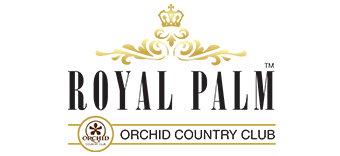As a multicultural and multi-religious hub, Singapore is home to around 5.7 million people from various ethnic and religious backgrounds. Halal food, which adheres to Islamic dietary laws, is especially significant for the Muslim community, making up approximately 15% of the population. Halal buffets, popular in Singapore, offer a space for people from all backgrounds to enjoy a shared meal in an inclusive environment. This article explores the benefits and challenges of providing halal buffets in a diverse society.
Benefits of Halal Buffets
1. Catering to a Diverse Customer Base
Halal buffets cater to a wide range of diners, making it easy for Muslims to enjoy meals with friends and family members from different backgrounds. By accommodating both Muslim and non-Muslim diners, halal buffets promote inclusivity and help foster a sense of community among guests.
2. Promoting Healthier Lifestyle Choices
Halal food is inherently free from pork and alcohol, which aligns with health-conscious choices. Halal meat is also generally leaner due to strict preparation methods. By offering halal buffets, businesses can appeal to diners interested in healthier eating options that avoid certain ingredients.
3. Meeting Dietary Needs
For Muslims, halal food is essential to their religious dietary requirements. Offering halal buffets allows businesses to meet the needs of these diners and build loyalty. Non-Muslims who appreciate dietary inclusivity may also be attracted to venues that offer a variety of halal-friendly dishes.
Challenges of Halal Buffets
1. Additional Costs
Providing halal food comes with added expenses. Certification and preparation according to Islamic guidelines require sourcing meat from certified suppliers and may involve additional staff training. These costs can increase operational expenses, and businesses may need to adjust their pricing to cover them.
2. Limited Menu Options
Halal guidelines restrict the use of certain ingredients and preparation methods, which may limit the menu variety at halal buffets. This can be a challenge when trying to cater to a broad audience with diverse tastes. Creating a varied menu that aligns with halal standards requires careful planning and may constrain some menu options.
3. Food Safety Concerns
Ensuring that food is handled and prepared according to halal standards is critical. Meat must be slaughtered in a specific way, and the entire preparation process must avoid cross-contamination to retain halal certification. Businesses must invest in strict food safety practices and training to maintain the halal status of their offerings.
Conclusion
Halal buffets in Singapore present both opportunities and challenges in catering to a diverse community. Their inclusivity, healthier food options, and adherence to dietary needs make halal buffets appealing to a wide customer base. However, the additional costs, menu limitations, and food safety protocols require careful management. Despite these challenges, businesses that commit to providing halal food can build loyalty and expand their customer base by embracing Singapore’s diverse dining culture.
In essence, halal buffets serve as a bridge, uniting people through shared culinary experiences and fostering a culture of inclusivity. With the growing demand for halal options, businesses have an excellent opportunity to meet this need while contributing to a harmonious and inclusive dining landscape in Singapore.
